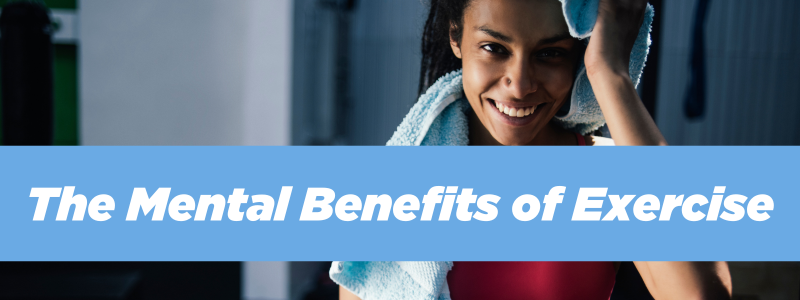We all know exercise is excellent for physical health, but did you know it can also significantly impact your mental well-being? It’s not just about getting that post-workout glow; it’s about feeling mentally strong and resilient.
In this blog post, we’ll explore how exercise can empower you mentally and give you the tools to face life’s challenges with a positive mindset.
- Stress Reduction
One of exercise’s most immediate and noticeable benefits is its ability to reduce stress. When you engage in physical activity, your brain releases endorphins, often called “feel-good” hormones. These endorphins act as natural mood lifters, reducing stress and anxiety levels. Whether it’s a brisk walk, a yoga session, or an intense cardio workout, exercise can be a powerful tool for managing life’s everyday stresses.
- Enhanced Mood
Regular exercise has been linked to improved mood and decreased symptoms of depression and anxiety. It promotes the release of neurotransmitters like serotonin and norepinephrine, which play a crucial role in regulating mood. Physical activity can give you a more positive outlook, making you feel mentally resilient even in challenging situations.
- Increased Self-Esteem
Exercising regularly can improve your self-esteem and body image. You’ll likely gain a greater sense of self-worth as you achieve your fitness goals and see positive changes in your physique and abilities. Feeling good about your physical self can translate into increased mental strength, helping you face life’s obstacles with confidence.
- Better Sleep
Quality sleep is vital for mental health; exercise can significantly impact your sleep patterns. Regular physical activity helps regulate your circadian rhythm, making falling and staying asleep easier. Improved sleep enhances cognitive function, emotional regulation, and a stronger mental state.
- Increased Resilience
Exercise teaches you resilience, both physically and mentally. Pushing through challenging workouts, setting and achieving fitness goals, and overcoming physical barriers can boost your mental toughness. These experiences serve as a reminder that you have the strength to persevere and overcome obstacles in other areas of your life as well.
- Social Connection
Many forms of exercise, such as group classes or team sports, provide opportunities for social interaction. Building connections and friendships through exercise can profoundly impact your mental well-being. A strong support network can help you easily navigate life’s ups and downs.
- Cognitive Benefits
Physical activity has cognitive benefits, too. It can enhance your focus, memory, and overall brain function. Exercise increases blood flow to the brain, promoting the growth of new brain cells and improving neural connectivity. This can help you feel mentally sharp and ready to tackle challenges.
Exercise is not just about looking fit; it’s about feeling mentally strong and resilient. The mental benefits of practice, including stress reduction, enhanced mood, increased self-esteem, better sleep, increased resilience, social connection, and cognitive benefits, can positively impact every aspect of your life. Incorporating regular physical activity into your routine is a powerful way to boost your mental strength and equip yourself to face life’s challenges confidently and positively. So, lace up your sneakers, hit the gym, or take that outdoor jog—your mental well-being will thank you.


